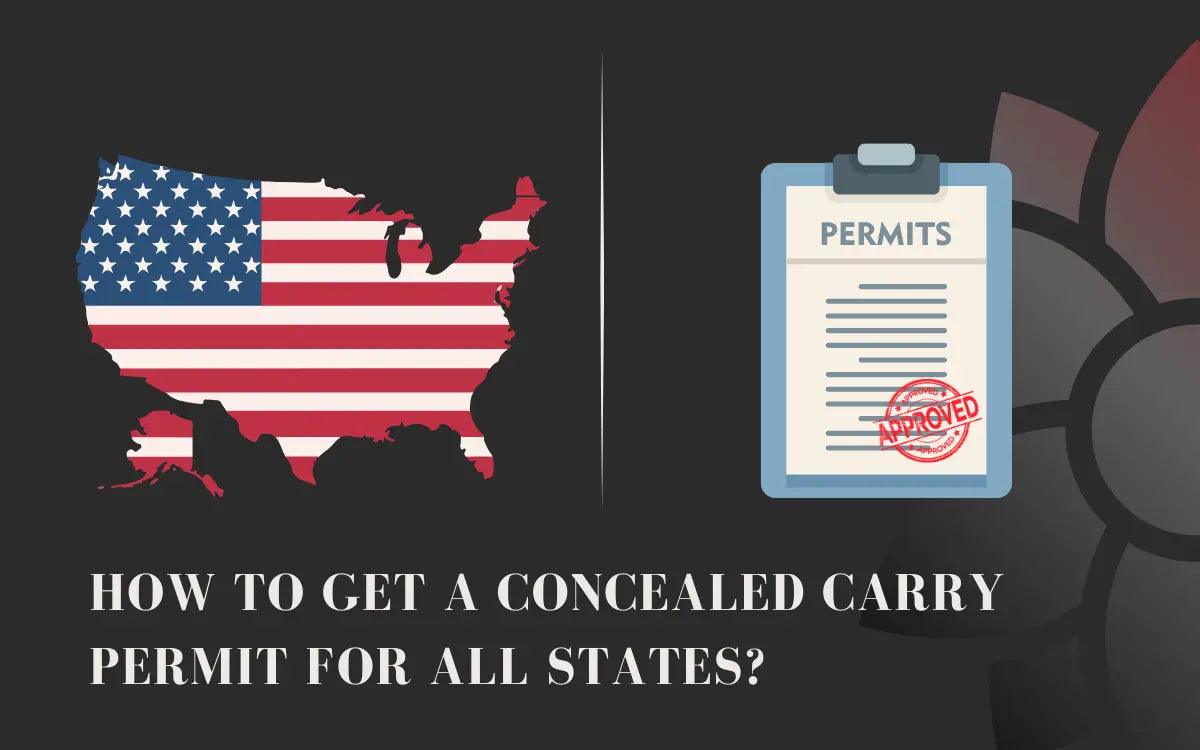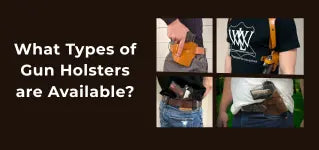If you're thinking of carrying a firearm concealed anywhere in the U.S., it is essential to know the laws around it. The answer to this question is not quite simple, as federal and state governments shape the laws related to carrying a gun. Federal law sets certain specific standards, but each state can and has implemented its own regulations. So, the rules vary and impact your ability to get a concealed carry permit. In this post, we'll clear things up to help you know where you're headed.
Why Concealed Carry Permit Laws Are Different in U.S. States?
Concealed carry permit laws vary in each American state because of state governments. Each state government sets its own rules for carrying a firearm. Not only that, but some states fall in the category of permit less or constitutional carry, while others demand that you carry a permit for your handgun.
The minimum standards set by the federal government for gun ownership and carry include the following:
- Background checks are conducted for all purchases of weapons from licensed dealers.
- Categories of people, like convicted felons and those with restraining orders, are not allowed to buy or keep firearms.
State laws regarding guns are varied. These laws may be in line with the federal standards or exceed them. The following gun laws are used by the states:
- Some states demand concealed-carry permits and others do not.
- Some states have a waiting period for firearm purchases, and others don't. For instance, California has a 10-day waiting period, but Texas, Alaska, Arizona, and Montana have no waiting period.
- There are bans on assault weapons, which are semi-automatic, high-powered guns, in some American states.
This patchwork of laws means that the responsibilities of gun owners depend on where they are in the U.S.
How to Get a Concealed Carry Permit?
To get a concealed carry permit, you must first understand certain key points regarding gun laws. Let's begin with the policy regarding publicly carrying guns in the U.S.
Permit less Carry vs. Permitted Carry
Here's a quick comparison between permit less and permitted carry. Put simply, if you are in a permitted carry state, you need to apply for and receive a government-issued permit. It involves background checks, fingerprinting, and safety training. The requirements under every system differ considerably in every state. Some have a very lenient permitting process, while some follow stringent rules.
|
Feature |
Permit less (Constitutional) Carry |
Permitted Carry |
|
Requirement of the permit |
No (for eligible groups) |
Yes |
|
Background checks |
Not required for carry |
Required as part of the application procedure |
|
Need for training |
No |
Yes (often) |
|
Example states |
Missouri, Arizona, Texas |
California, New York, Illinois |
|
Reciprocity |
Not applicable because no permit is issued |
Some states honour the permits of other states |
Law Enforcement Officers Safety Act (LEOSA) Federal Law
The LEOSA federal law stipulates that the only category of people who can carry concealed weapons in all U.S. states is qualified law enforcement officers. This group includes both active and retired officers.
However, it is a nuanced rule. Although law enforcement professionals can carry a concealed firearm in all U.S. states, the District of Columbia, and all other U.S. possessions (except the Canal Zone), some areas are regarded as off-limits under this law. These include:
- The restriction on possessing or attempting to possess a weapon in federal facilities.
- If you have a concealed-carry permit from a state where there are federal parklands and Gun-Free School Zones (GFSZs), you can carry your hidden weapon in those areas. This is an exception made by the LEOSA for state permit holders.
- If you're carrying a gun under LEOSA, you're following the federal law, and not the state's concealed carry law. So, the exceptions for state permit holders are not applicable to you.
General Guidelines to Get a Concealed Carry Permit
The process of obtaining a concealed-carry permit differs in each of the 50 American states. In general, here are the steps everyone who isn't a qualified law enforcement officer needs to follow:
- Learn the requirements:You must review the eligibility rules, application forms, and documentation needs of the state for which you want to get a permit.
- Take the training: In some states, applicants must complete an online concealed carry course. It covers things like how to handle and store weapons, as well as legal responsibilities.
- Complete the application for getting the permit:You need to apply for the concealed weapon license. To do so, download the application from the state's local sheriff's office. It is in this process that you need to provide fingerprints, undergo a background check for criminal offenses, and pay the fees, which average $10.
- Complete the approval time:Approval times can be between a few weeks to a few months. Once approved, you'll receive the concealed-carry permit and carry it whenever you take your weapon.
- Renew the license:To maintain your permit, you must renew the license. The period of validity varies in different states. It is between five to 7 years. After that, reapply for the license.
Is There a Federal Concealed Carry Permit?
No. There is no federal concealed carry permit in the U.S. The permits are issued by state governments, with each state having its own set of requirements. The ATF or any other federal agency does not have any say over the process of issuing a license. You must contact your state's Attorney General's Office to get all the requisite information and specific steps to be followed to get a permit to carry firearms disguised.
Concluding Words
Getting a concealed carry permit in the U.S. requires you to learn about local laws. If you belong to a permit less carry state, you don't need to go through background checks, safety training, and comply with other requirements to get a license. If your residence comes under a permitted carry state, it is best to contact your local sheriff or attorney general's office. You can also get important state-specific details from the local police department. The local laws are also applicable to carrying a gun in your car in the U.S.






Leave a comment (all fields required)